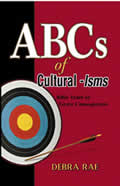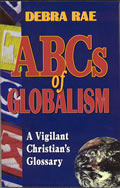HUMAN RIGHTS COUNCIL: FOXES IN THE HENHOUSE
By
Debra Rae
October 17, 2012
NewsWithViews.com
Basic to American creed are inalienable rights to “life, liberty, and the pursuit of happiness.” In his Second Treatise of Government, John Locke outlined the law of nature and nature’s God—i.e., rights of “life, liberty and estate.” Locke agreed with our founders that fundamental human rights are God-given. Thomas Jefferson characterized the Locke Model as “the People’s Law,” rightly balancing between tyranny, on one hand, and anarchy on the other.[1]
The United Nations Universal Declaration of Human Rights
The international community concedes that every person is entitled to fundamental rights that preclude abuses of discrimination, intolerance, injustice, and oppression. In 1948, following World War II, the United Nations Universal Declaration of Human Rights was signed, thus establishing basis for world freedom, justice, and peace.
A plain-language version of this Declaration unambiguously touts rights to freedom of thought/speech, religion/conscience, assembly/voting for one’s preferred candidate or party slate. Fundamental human rights likewise include right to equality, privacy, marriage and family, needful sustenance, private ownership, safety, and more—all regardless of gender, race, ethnicity, religion, and socio-economic standing. If accused, one has the right to legal representation and a public trial; moreover, he is considered innocent until proven guilty. Furthermore, the Declaration expressly outlaws slavery, torture, unfair detainment/ false imprisonment, and killing.[2]
The Human Rights Council
Charged with strengthening and protecting human rights worldwide, an inter-governmental body within the United Nations (the Human Rights Council) consists of forty-seven Member States elected by the U.N. General Assembly. One might reasonably expect those charged with reviewing, advising, and addressing human rights violation complaints themselves embrace the United Nations Universal Declaration of Human Rights, as summarized above.[3]
But composition of officials at the Council’s twenty-first session in Geneva (September 2012) suggests otherwise. Elected nation-states include Bangladesh (third largest Muslim country after Indonesia and Pakistan), Benin (13-15 percent Muslim), Burkina Faso (25 percent Muslim), Cameroon (25 percent Muslim), China (5 percent Muslim), Djibouti (94 percent Muslim), India (11 percent Muslim), Indonesia (87 percent Muslim), Jordon (92 percent Muslim), Kuwait (90 percent Muslim), Kyrgystan (52 percent Muslim), Libya (97 percent Muslim), Maldives (100 percent Muslim), Mauritania (99 percent Muslim), Mauritius (17 percent Muslim), Qatar (99.9 percent Muslim), Russian Federation (12 percent Muslim), and Saudi Arabia (100 percent Muslim).
Add to these an Advisory Committee representing Azerbaijan (87 percent Muslim), Nigeria (48-50% Muslim), Pakistan (95 percent Muslim), Morocco (99 percent Muslim, including Western Sahara), and Egypt (90 percent Muslim).[4] Note, too, that Israel was strangely missing though, unlike the Muslim mindset, Israel’s biblical ethic uniquely features the dignity of human life.[5] Furthermore, she is known broadly as the only true democracy in the region, allowing all Israeli citizens (Muslims included) the right to vote or run for office.[6]
So … What’s the Problem?
Disturbingly, Hamas’ founding document proclaims war to be open “until Israel ceases to exist … and the last Jew in the world is eliminated.” In 2006, the Hamas even launched a terror web site for children to see cartoons and hear stories preaching the moral desirability of becoming a suicide terrorist.[7]
Jamal Abdel Hamid Yussif has admitted: “Our people love death.” Furthermore, he added, “our goal is to die for the sake of God; and if we live, we want to humiliate Jews and trample on their necks.” Outspoken wives of terrorists express longing for Allah “to make Jewish women widows and their children orphans.”
• Muslim Record on Freedom from Force/Oppression
Islamic cultural imperialism imposes the religion and culture of seventh-century Arabia wherever it sets foot. The term “Islam” speaks to the “perfect peace resulting from total submission to Allah.” The Qur’an expressly forbids taking Jews and Christians as friends and protectors. Instead, it urges Muslim believers to war, fight, seize, and kill.[8] The fatwa pronounces death to non-Muslims (i.e., infidels, likewise known as “cows”). If not properly submitted, whether by consent or conquest, the Dar al Hob (House of Infidels, including Jews and Christians) must be seized and slain wherever Muslims find them.[9]
• Muslim Record on Women’s Rights
Both Saudi Arabia and Afghanistan have ratified an international treaty promising women “the exercise and enjoyment of human rights and fundamental freedoms on a basis of equality with men.” While the Convention on the Elimination of All Forms of Discrimination against Women (CEDAW) sounds promising, reality flies in the face of its hollow precepts and vague language. Be sure, in Saudi Arabia, women still may not vote, drive a car, or travel alone; and some women in Afghanistan continue to set themselves ablaze in order to escape forced marriages. In fact, Muhammed referred to women as “toys” and “property” to be bought with “dowries” by men. Before marriage, women and girls undergo chastity tests, and an estimated three million are brutalized by forced female genital mutilation each year.[10] Muslim husbands may beat wives for the flimsiest of reasons; and more often than not, physical abuse toward women and children goes unreported.[11]
• Muslim Record on Human Dignity
Under Shariah law, a man can sequester his wife at home as punishment for disobedience; and maids and underlings are treated poorly. Up to 17,000 victims every year yield their God-given human dignity to “honor”-related kidnappings, sexual assaults, beatings, and murders. Activist-author Brigitte Gabriel of Lebanon reported that, in her experience, Muslim Palestinian students in the Old City of Jerusalem broke crosses, dug up bodies in Christian cemeteries, and threw acid in faces of Christian girls.[12]
• Muslim Record on Equality
In no uncertain terms, Muslims are called to “fight those who do not believe in Allah … until they pay the tax in acknowledgement of superiority, and they are in a state of subjection.”[13] Men are rewarded for marrying (thus evangelizing) non-Muslim women, but women who do the same face punishment by death. Fabulous rewards in Paradise await men. On the other hand, Qur’anic teaching is unclear as to a Muslim woman’s eternal state—perhaps because, in Islam, “the male has the equal of the portion of two females.”[14]
The wife receives half the amount of inheritance enjoyed by her male siblings. Moreover, that inheritance is shared with additional wives, children, and extended family members. Divorce and remarriage are easy for men, but not for women. When a husband dies, the father’s uncle, not the mother, wins custody. Practically no social structure of support exists for widows outside their families; hence, their children are sent out into the streets begging for bakshish (“tips”).
• Muslim Record on Freedom of Speech/Press; Thought/Religion
To criticize Islam merits the death sentence—e.g., a human rights activist and women’s advocate Farag Foda was falsely accused, then gunned down in front of his Cairo office (1992). Forget about freedom of press. In Iran, Not Without My Daughter[15] became one of the "most hated" books along with Satanic Verses by Salman Rushdie.[16] Both were banned.
Freedom of thought and religion? No way. A Shiite court ruled Kuwaiti Muslim-turned-Christian Robert Hussein an apostate worthy of death. Harsh religious court rulings violated even Kuwaiti civil law. Indeed, the court ruled that his wife should be divorced from him, and all his possessions distributed to heirs.[17] Similarly, Mehdi Dibaj’s conversion from Islam to Christianity landed him in prison for ten years before an official execution order was issued. The leader of Evangelical Christians in Iran launched an international campaign to end civil rights violations of Iranian Islamic courts. At the eleventh hour, the government was forced to release Dibaj; but in exchange for his courage, Bishop Haik himself suffered martyrdom.[18]
Inconceivably, Egypt, Kuwait, and Iran were among U.N. foxes elected to oversee the henhouse of human rights.
Global Human Rights Applauded Disingenuously
Human rights are commonly understood to be “inalienable” and “fundamental.” However, given make up of the Human Rights Council and advisors, one wonders: Why would communist Cuba be among those reviewing, advising, and addressing complaints about the right to democracy? And what’s the wisdom in electing Saudi Arabia to address complaints about women’s rights?
| Subscribe to the NewsWithViews Daily News Alerts! |
Under China’s occupation, the Tibetan people are denied most rights guaranteed in the Universal Declaration of Human Rights—namely, rights to self-determination, freedom of speech, assembly, movement, expression, and travel—yet China is among those reviewing, advising, and addressing complaints about freedom from foreign occupation. Similarly, in Uganda, Asian/Indian residents are assigned inferior status, yet Uganda is among nation-states speaking to complaints about racism.
For Iran, Pakistan, and Libya to be among those addressing freedoms from terrorism, hostage taking, and war defies common sense. Then there’s India, where gross human rights violations are commonly leveled against its indigenous population; yet India’s tasked with reviewing, advising, and addressing complaints about the very ones they marginalize.
Apparently, seventeenth-century French writer Francois de La Rochefoucauld was correct: “Hypocrisy is the homage vice pays to virtue.”[19]
� 2012 Debra Rae - All Rights Reserved
Footnotes:
1.
Michael S. Coffman, Ph.D. Plundered: How Progressive Ideology Is Destroying
America (Bangor, Maine: Environmental Perspectives, Inc. 2012). 25 and
29.
2.
https://www.un.org/cyberschoolbus/humanrights/resources/plain.asp
3.
http://www.ohchr.org/EN/HRBodies/HRC/Pages/HRCIndex.aspx
4.
William Wagner. How Islam Plans to Change the World. (Grand Rapids:
Kregel Publications. 2004). 247-262.
5.
http://str8tguy69.xanga.com/705968001/seven-principles-of-the-judeo-christian-ethic/
6.
http://www.factsofisrael.com/en/democracy.shtml
7.
www.Al-Fateh.net
8.
Al-Tauba 9:29; Al-Nisa 4:89; Al-Anfal 8:65, Qur’an
9.
Sura 4:89; 5:14, Qur’an.
10.
http://movies.nationalgeographic.com/movies/desert-flower/
11.
Al-Nisa 4:34, Qur’an
12.
http://en.wikipedia.org/wiki/Brigitte_Gabriel
13.
Al-Tauba 9:29, Qur’an
14.
Al-Nisa 4:129, Qur’an
15.
Betty Mahmoody. Not Without My Daughter. (New York: St. Martins Paperback.
1991).
16.
Salmon Rushdie. The Satanic Verses, A Novel. (New York: Viking Penguin,
Inc. 1989).
17.
https://www.rutherford.org/
18.
www.acryfromiran.com
19.
http://www.brainyquote.com/quotes/quotes/f/francoisde124518.html











 Share
This Article
Share
This Article






